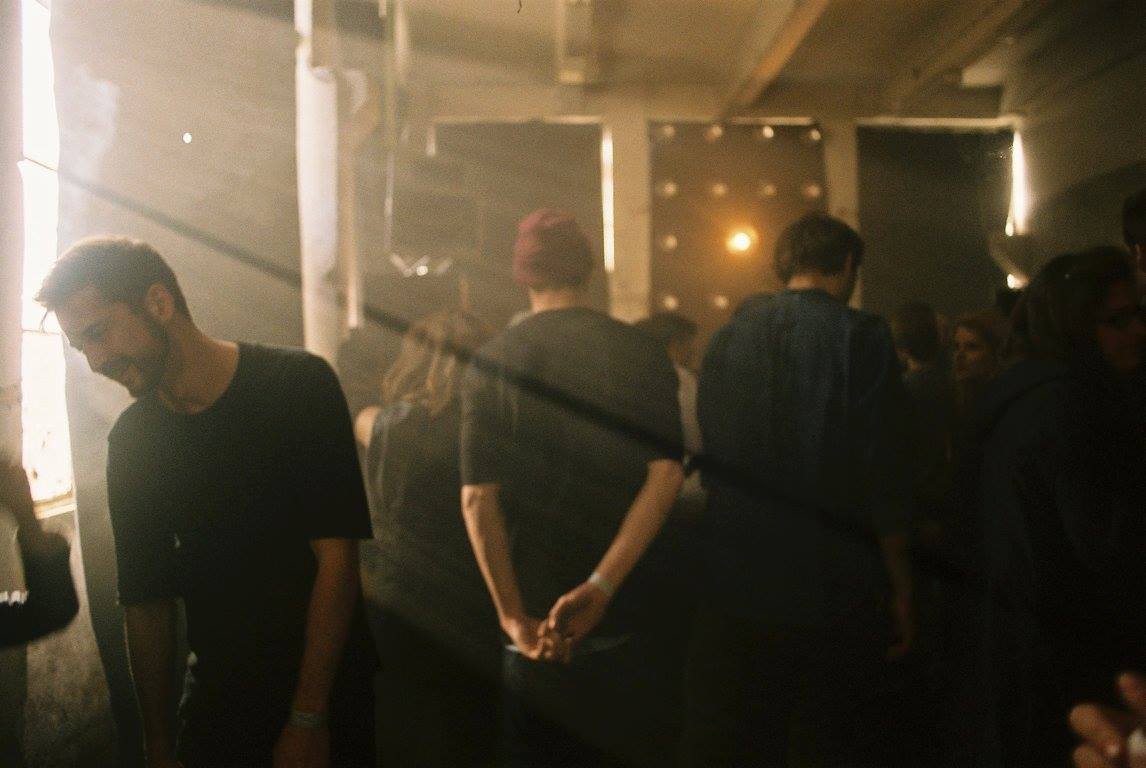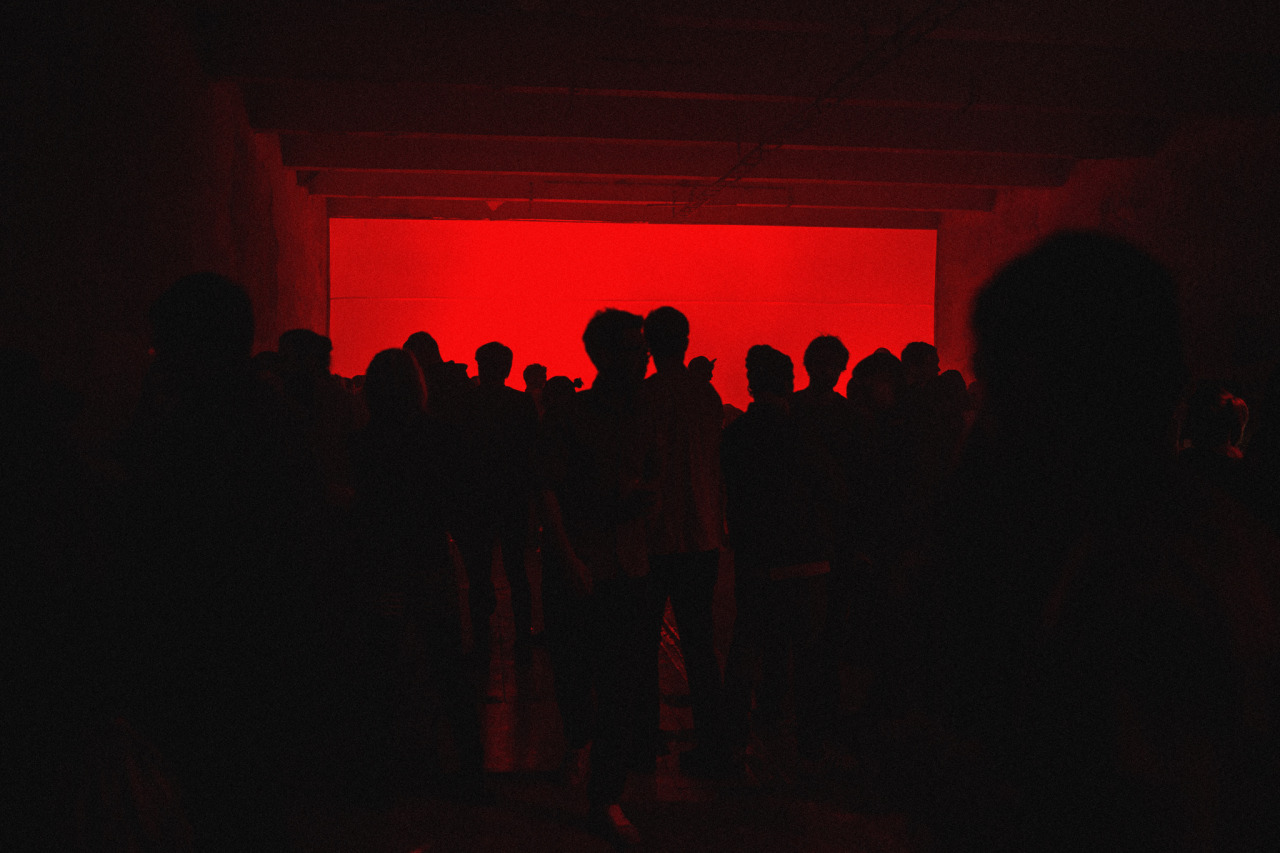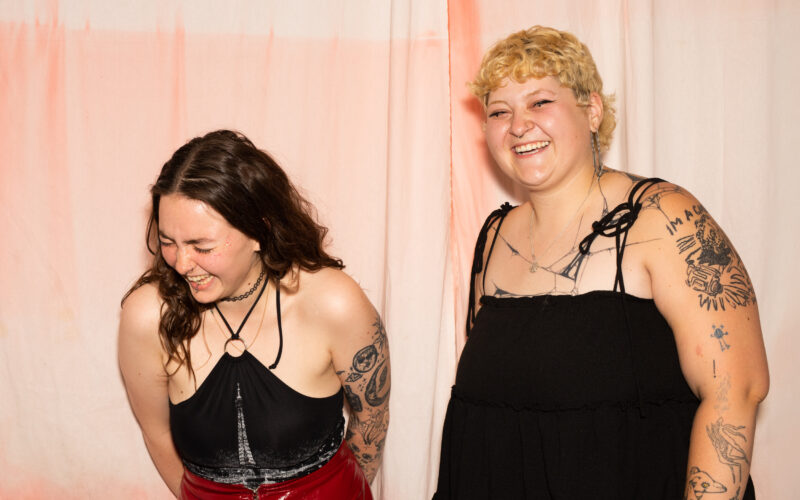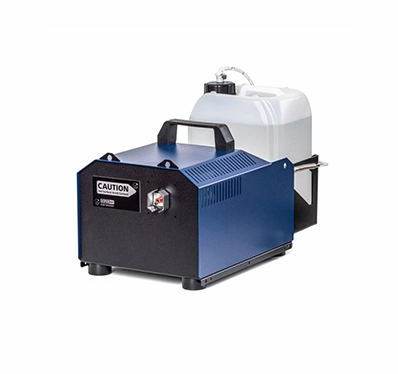The making of the scene #3: Interview with fleika
In this interview, I talk to Martin aka fleika, who is active in Prague techno scene mainly as a DJ, while he also engages in various other projects and collaborations. He used to form one half of a DJ tandem Karst (with Sinnan), he plays occasional live ambient acts (solo, or in tandem with friends such as Trevor Linde, or Oliver Torr), and helps with organization and production of local events (Polygon, Ankali). Martin also organizes his own parties in Wildt (“Wild im Wald,” with Higgins), and often stands in as an unofficial resident DJ for CUKR parties.

We start talking about his beginnings, and about the process of learning to DJ, and about DJ skills. We then proceed with exploring the issues of place and space. First, we discuss the role of venues, and the differences between DJing in bars versus clubs versus warehouses. Second, we examine the topic of social spaces, about how DJs shape the room, and interact with dancers, and about what role do different track folders have in this regard. For the end, we also briefly consider geographical factors, and contemplate the characteristics of Prague’s electronic dance music scene.
David: How did your involvement in the scene start? As a party-goer, and also as a DJ. What were the factors that pulled you in? When was that and how it worked?
Martin: I was exploring many other genres before techno hit me. I don’t know if I can say an exact year. I started raving maybe five years ago… maybe six. That was when the local techno scene was all booming (again). Events were not that frequent at that time, it was mostly Polygon parties that interested me, Harmony, nite vibes and a few others here and there. I kind of fell in love with techno at first sight. And maybe after six months I got more interested. I started listening to techno constantly. I borrowed a DJ controller from my friend, and started messing around with it at home and trying to figure it out. Then I realized it’s just a toy and I wanted to learn to mix properly, so I started to explore how CDJs works. By that time, I was playing at events already. I think I was really lucky, because… I was involved in the scene as a party-goer for some time, so I already knew a lot of people, I knew a lot of DJs. First time I played was in Neone (RIP—or not?). A lot of DJs when they start, they play bars, smaller venues, shitty venues, let’s say. Back then Neone was probably the best club where I could play. So, I consider myself very lucky in that regard. And Stalin, the open-air venue with free entrance was opening by that time and I started playing there regularly. Yeah, basically, through friends I got to nice places, and I think I got recognition very fast because of this. I could play gigs since almost the very beginning. I got experienced quite fast in what to do. Like I said, it was a big thing for me, the music. I was listening to it all the time.
D: So, it’s important when you are starting to have the right venues, and the right people around that will support you?
M: Yes, I would say that is the best learning process. When you actually get to play. And you have the people to play for. Yeah, I consider myself very lucky that I was basically playing for the crowd since the beginning. Maybe after like six months of DJing, we got this surprise gig with Jachym (Higgins). It was on a Friday, at Stalin. It was the day of the Prague Pride. We started to play from 7pm or so… And in like two hours, there were hundreds of people. Mostly gays. So, the best crowd you can play for. And this was definitely the first gig where we got that ecstatic feeling from playing, just two newbies playing techno, and at that time nobody came to lower the volume down… good times. This was probably the first time I got real feedback from the crowd and felt this mass appreciation for playing music I liked. And it was a very positive experience for me. I remember we were still having goosebumps when we walked away, with Jachym. And we were just thinking “what the fuck happened?!” It was like “wow!”
D: As we are talking about the learning process and experiences, I want to ask you, what makes a good DJ, what are the necessary skills to become a good DJ?
M: Hmm. Commitment is the most important! You should have at least some basic technological knowledge and you need to love it. Yeah and ears of course.
D: Ears in what sense? Probably not in a traditional sense of music theory and perfect pitch, right?
M: Yes, you need to listen to what is happening when you mix multiple tracks together. Good taste is not enough. You need to hear it, in theory you can mix together anything you want, but to make it sound good, you need to EQ properly, make it smoother.
D: So, it’s a very analytical approach?
M: Yes, I think it’s definitely a really nerdy thing. To DJ. At least when you want to do it properly. Like in many other things. You need to focus on it a lot.
D: Plus, it probably helps, if you are a raver first? The experience of dancing?
M: Definitely… Yes, maybe like the first two or three years when I played, I was still 50% raver, and 50% DJ. So, I was at every important party. When there was an important DJ I wanted to see, I was there. It definitely helps to come from that area. Because then when you play, you know how it affects the audience. Back then, when I was raving with this little group of friends, we were very strict, we were like party nazis, we were very analytical about it. We were super strict about which music should be played in the beginning, in the peak time, at the end. In time, we got very involved with all of this. I’m still raving, but definitely not as frequently as before. At the beginning every party and every set was just fucking epic, but with time you get more picky and basically more knowledgeable about it. Then you know when something doesn’t work.
D: I also wanted to talk about the issues of place and space, which concern me a lot in my research. Let’s say, the importance of venues and clubs for the scene, and the warehouses. What would you say is the role of place, the role of venues, for the scene?
M: In Prague, it all started with warehouses and pop-up parties, at least for me. And except for Meetfactory, Neone or Stalin, there were no clubs. At least no good ones, until Ankali opened. And now Fuchs as well. With Ankali, it all changed and kind of stabilized.
D: So, you probably felt the lack of proper places, that’s why you had to organize your own parties? With Polygon and stuff?
M: Yeah. Well, I wasn’t involved with Polygon from the very beginning. At first, I was just a fan, then I started to play, and I got into organizing much later. But yes, with the warehouses, there was just something sexy about it. Because, it was fresh every time. With Polygon especially, every time they organized a warehouse party, it was something completely new. It was a new experience. I remember that we didn’t know where the next location would be. Even if we were friends. And we didn’t want to know. We just wanted to be surprised. When you check the old Polygon events on FB, you can see how it was done. Weeks before the event you would get just little sneak peaks, some revealing photo of the place, some weirdass codewords or whatever. Then maybe some last minute teaser in the form of a short video. There was some tension in the air because of it and you could hear people talking around the city. Then location was published a few days before, and you were really thrilled. You were basically looking forward to see something new. And every time, they delivered. It was definitely a big thing, these early Polygon parties, they shaped me and the scene a lot.
D: So, it was not only about the DJs who played there, but your excitement was also related to the venue itself?
M: Definitely. It was maybe even more about the place, and about those little surprises. I was listening to a lot of music, but sometimes the artist that was coming wasn’t that important for me. And of course, techno was fresh to me at that time, so sometimes I enjoyed the locals even more.
D: What was about these warehouses that made it so attractive for the people? Was it how they looked like? Or the notion that you had to search for them? Or the feeling they provided?
M: Well, when you go to a club, you know what to expect. Space is the same every time, there is no surprise. With warehouses, or secret location parties, you had this feeling of not knowing. And in Ankali, you can have a similar feeling, it’s really convertible with overall atmosphere, so you can make quite a big difference in terms of space and atmosphere there, between events like Archiv Teknologi or Disco Církev for example. The difference can be massive. Because of the people involved and their background, their skills.
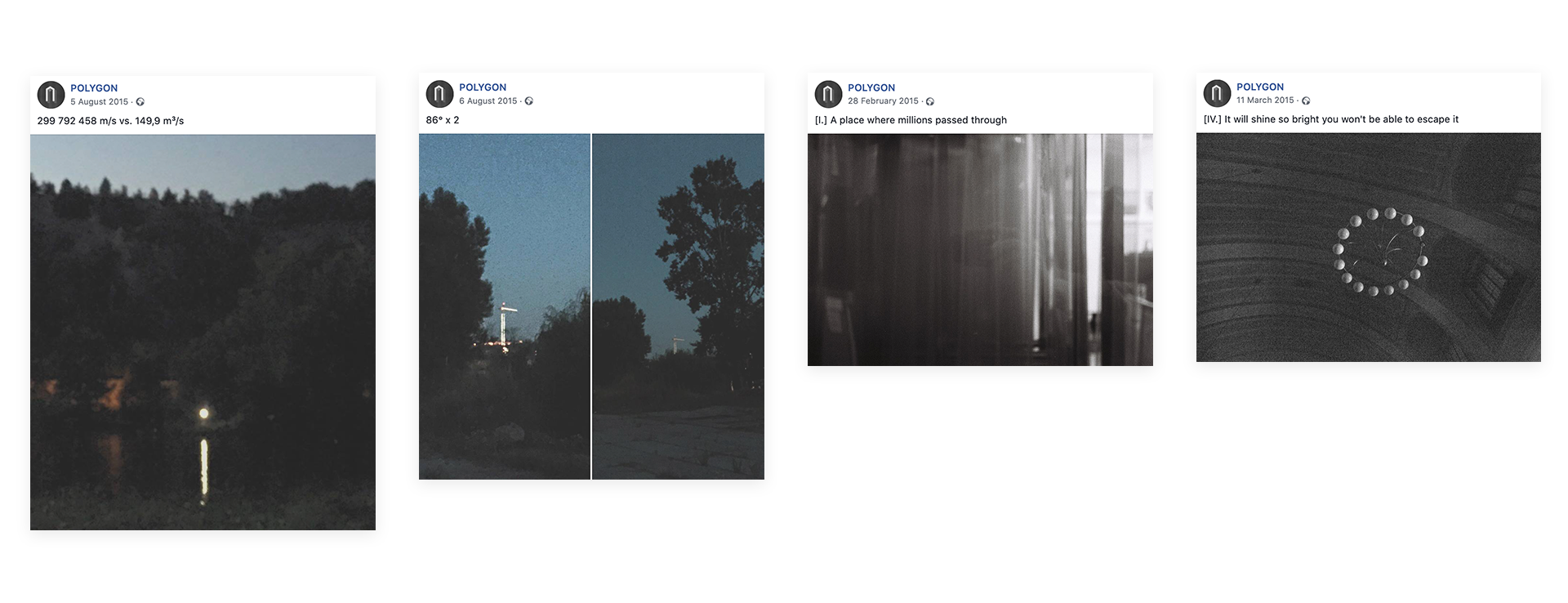
Polygon location teasers from Facebook.
D: And it’s maybe also related to the nature of the place, if we talk about warehouses? Regarding the feeling they provide for the parties. Which maybe brings out some associations for the organizers, and for the party-goers as well? For example, I saw some parties are organized in this way. I remember the last one that CUKR made [“CUKR modul,” on November 29, 2019, in Holešovice], it was something related to outer space, and it was inspired from the venue itself, as I remember?
M: Yup. It was a three-floor ex-freezer building, and the walls inside were all covered with aluminium. So, that was kind of enough to feel like you are in a spaceship [laughs]. And then they added a lot of space-inspired decorations too.
D: So, organizers always follow these cues from the buildings, and then they reinforce them in terms of decoration. Do the DJs also add to it?
M: Yes, definitely. It’s important to adjust to the place and time. With the party-making, and DJing as well. In CUKR’s case it’s kind of a themed party most of the time, they usually adjust to the place. But you don’t need to follow any rules and you do whatever feels right and that’s the beauty of it. For promoters, it’s not that easy to adapt completely, sometimes location is not confirmed days before the event, when booking is already done. And for me as a DJ, every time I put a lot of time into preparation for gigs and I also try to adapt to the location, or to the main act. In this case, I knew I would play a long closing, so I chose tracks with a feeling related to the location and I found and cued up some radio comms from Apollo 11 for the intro.
D: Aha, cool. And otherwise, as a DJ, how do you adapt to the venue, if you for example play in a bar, or a club, or a warehouse? Do you play differently in these places?
M: Hm, when you play in a bar, you definitely can’t smash 130 bpm techno, and expect that people will feel good. You adjust with track selection, with speed, with mixing. You mix slower in a bar and you put more effort into selection. When I play a warehouse, I will play faster, and I will want to create more energy, but it also depends on the time. You can’t just come and start fast and hard at 10pm, when there is no one. It’s really about creating the atmosphere, sometimes people want to talk, sometimes they wanna dance hard, so you select and mix according to the situation. There are definitely a lot of factors in this. When I will play at 3am, peak time, with three CDJs, I will definitely also mix much faster, than in a bar, when you think more about the selection. Because you want to sustain some vibe.
D: So, basically, the warehouses provide you with more freedom? Events there also go longer, right? You have to pace it differently?
M: Yes, let’s take an example. When you have a remote warehouse location, ravers will go there with more commitment. Most of the time it’s more expensive than club fees. So, people want to stay even longer, or because it’s a remote area. Then, it’s definitely longer and there is more time to create something, musically. In warehouse conditions, if I would play from beginning to end, I would start very slow. Even maybe first 30 minutes with no beat. It’s kind of the listening part of the party. People who come in the beginning, they are still exploring the space, or they just wanna talk and relax a bit. You can’t expect that they will just come and they will immediately come in front of the speaker and start to rave hard (sometimes they do…). You need to lure them in. Then maybe I will play tracks with a beat, to slowly get to some point where I want to be. When it’s a long party, you don’t want to rush things up and you put more effort into selecting. Then when you have some crowd and you see people are ready for more, you adapt, raising a bpm slowly, you pick more energetic tracks or mix faster. Maybe between 2am-5am, that’s kind of the time when you want to keep the energy high. It’s peak time in Prague, I would say. Then, let’s say it’s 5am, you kind of feel, or see, that some of the people are leaving, so you feel something needs to change. So you maybe play more melodic stuff, or you maybe even slow down, or maybe do some breaks, actually a lot of breaks. Not breakbeats, but to give the crowd a break.
D: And then you bring it back maybe, because there’s still time (because in a warehouse, the events are usually longer)?
M: Yes, definitely. At the very end, I usually go up and down a lot, because it is important to give them the feeling of the end, and then still build it up again to keep them going as long as possible. Because that’s something I would want or expect on the dancefloor.
D: What were the longest parties that you’ve played, at warehouses? Sometimes it goes until 10am, or even longer, right.
M: I think the longest one we did was the CUKR party in Divoká Šárka. Three years ago, I think. Divoká Šárka is an old, wild park. So, there were no noise complaints. It was super remote. So people really stayed long. It was a two-day party. Me and Higgins, we did the closing. We played for like nine hours. Until around 1pm. And with quite a lot of people staying till the end. I remember some girl came straight from Bukanýr 30 minutes before we ended and she was extremely pissed off we didn’t want to play anymore, we were too exhausted. So Jáchym played some rap track with “Fuck Donald Trump” lyrics as we were packing our stuff, ready to leave. But yeah, I really like it when it is remote. People usually stay longer, as the commitment for the party is much higher, and it’s when this “there is no tomorrow” feeling appears and you see it in people, just enjoying themselves.
D: So, we were talking about differences between bars and warehouses, and would you say there is also difference when you play in Ankali versus warehouses? We mentioned this before from the perspective of organizers (“convertibility”), but what about from the perspective of a DJ?
M: It can be different. It mostly depends on the individual party… Most of the time, I am supporting the main acts there, so then I adjust to the main DJ. it’s kind of like a ‘slave to the party’ thing. You don’t play the main slot, you either play the opening, or the closing. So, you adapt.
D: I also want to talk about another place-related issue. Because, not only the physical place matters, but also what I call a ‘social space’. Let’s say, how the party-goers make the space, and the decorations and lighting, and also how a DJ contributes to the creation of the space. Or to the atmosphere, to the moods that add to the feeling of space. In a sense, you as a DJ, you kind of shape the room, the space, right? In terms of how active the audiences are, etc? Maybe if you could talk about these things a little bit?
M: Yeah, it definitely depends on the individual party, or time, but in general, you kinda need to have some level of empathy, cause not every time you even see the people, and you can’t see every one of them, and you kinda have to feel it somehow.
D: From movement?
M: Definitely from movement, and from cheers or claps… that’s basically the response you get. The most obvious ones, but not every crowd is expressive… So then you have to feel it somehow, and I don’t think anyone can do this, as there needs to be some connection between the DJ and the crowd. So when this works, you can really go wherever you want.
D: Can you go in whatever direction you want?
M: Yeah, sometimes you see that people are dancing hard, sometimes you get the response from just one individual. You maybe stop for a while, you look around, and check what’s happening, and maybe try something completely different, if you feel it’s necessary. You pick a track, and someone is enjoying it. Sometimes you see a smile from someone. That’s definitely something that will not only make you happy, but kinda confirm that you are doing it right. Or someone will come to you, and give you positive feedback or somebody else will ask if you can play drum ‘n’ bass—please don’t ever do that again (laughs). And no feedback is sometimes even better, especially when you play ‘deep’ and you manage to put the crowd into some kind of meditative state. You see people dancing with closed eyes, somewhere else in their heads. That gives you strong feedback as well.
D: And you want to stay in one mood the whole time, or you also transition between them? Is there any planning in advance, or is it only about responding to the audience? What’s your vision regarding the dramaturgy in this regard? How do you shape it?
M: It’s definitely the mindset of the crowd, but sometimes it’s also about you yourself. Because, for example, you play cheerful, banging stuff for an hour, and then you feel like trying something else. Not only because of something you get from the crowd, but because of you as well. Because, you feel like ”Ok, now I’m tired of playing this, I will maybe slow down a bit, or do something different.” And you can play maybe darker stuff, and you see if they like it or not, you should kind of feel it from the crowd. Sometimes I surf around different vibes. It’s also nice, when you are going up and down, to all different kinds of moods, a lot of people enjoy these kinds of journeys I think… so you’re not only immersed in one space or mood. And I think that at first, I was really strict about it, that if someone plays, I want only one vibe, I want to be in it for as long as possible. But then I started to enjoy these kinds of eclectic sets as well. So, it definitely shaped me as a DJ too. For example, with Jachym, a lot of times we’re trying to play just ‘deep’, in any condition, because we want to create that kind of atmosphere, even when it’s not suited for the location, or the venue, or for the time. But you still kinda want to make something, or build something. Because that was kinda the genre we started with together. So, that’s where we feel the most comfortable with, and it’s the style that we share, when we play together.
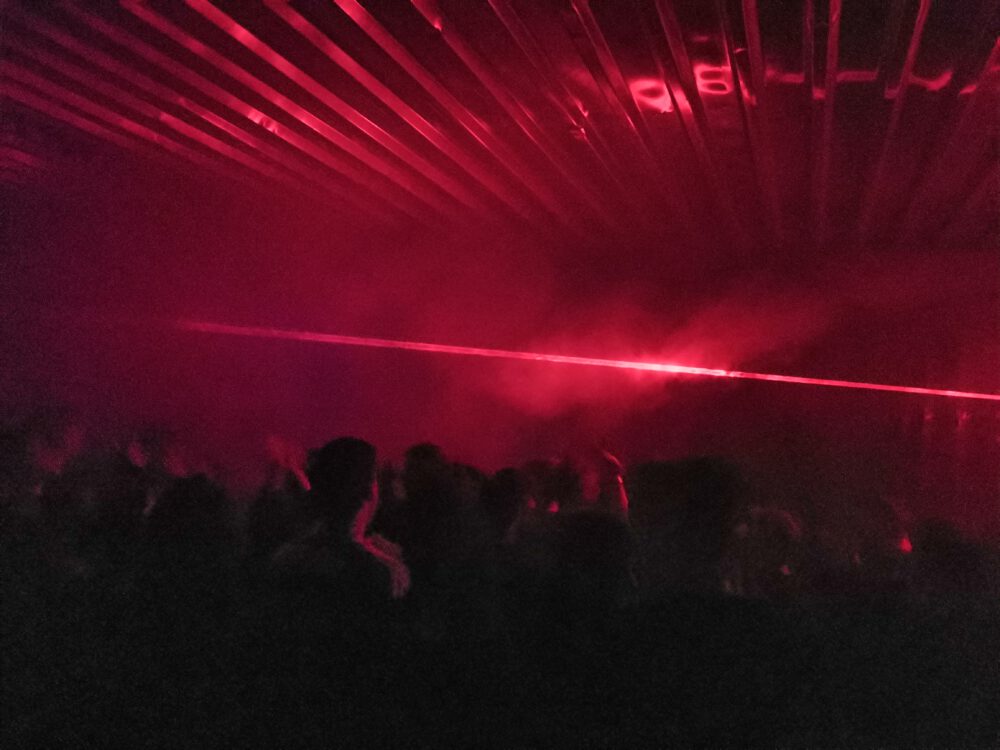
CUKR modul. Photo by David Verbuč.
D: And then when you said you want to travel around with your sets, you were mentioning several different terms for the ‘vibes’, like cheerful, deep. Which other vibes do you think you can create with your tracks? This is also related to your folders that you have? Maybe you can name some?
M: Yeah, like there is one folder called ‘temno’ [dark], which is like darker, maybe evil stuff. Then there is ‘positive’ folder, ‘groovy’ folder, which is something that could contain different genres, but there are always these groovy loops that can go on forever. And that’s what I enjoy in any set, that you can just play these tracks that can be maybe deep, but positive as well, because they have some groove that kinda makes you move. Which kinda makes you happy.
D: Which genres can this folder include?
M: It’s basically sub-genres of techno, which I sort out by feeling I have from those individual tracks. Then I have a ‘melancho’ folder, which can be slow, or fast, but the whole atmosphere of the tracks makes you kinda melancholic, or it could be even sad, or emotional. Then, I have a folder for ‘bar’ music. Then ‘dubby’. Then ‘weird’. It’s not necessarily weird tracks, but they are kinda weird to me, and I put a lot of tracks with broken beats there, I put maybe some more ‘wild’ tracks there… And I only put like two tracks from this folder for the whole set usually. These are tracks that are maybe sound-wise really interesting, they create sort of breaks in the set. They are not energetic, but they will break the routine of the set.
D: Yeah, like they spice it up a little bit?
M: Yeah. But for some people, it’s the best part of the set, because it’s mostly something that doesn’t sound like the rest.
D: They stick out maybe somehow?
M: Yeah, definitely. There is always something different in them.
D: And, then you were saying, you have ‘deep’ folder also?
M: Yep, and that’s just a mess, endless scrolling. Because of this I started to create more folders, organized by year… so now I have ‘2018deep’, ‘2019deep’, ‘2020deep’ and so on…
D: Just to return to my initial question, so all these folders and tracks in them, and how you transition between them, also kind of help you direct the audience responses, and shape the room, the vibe there, the social space itself?
M: Yes, for sure, but you have to do these changes carefully, without any sudden breaks, to not ruin the atmosphere. At least that’s my way.
D: For the end, I want to ask you about geographical space. About Prague, geographically or historically, shaping the local scene?
M: For sure the history and our geography must impact the scene and the music in many different ways, but this is not what I choose to focus on, or at least not consciously… I don’t want to categorize, but when you go to a different city, and you go to some party, the crowd will be different, because they live somewhere else, and they have a different mindset. And there is definitely a lot of interest in culture in many ways.
D: What about the types of venues used for parties, how they fit into this context, are they some that are specific for Prague?
M: Don’t know if it is specific for Prague… but there were a lot of different venues I’ve seen in the last years, big halls, abandoned places, ex-slaughter houses, or Prague’s main train station, most notably. But lately it’s really hard to find and get some good venue, so we don’t have so many parties like this anymore.
D: Would you say that Prague scene is unique in some way?
M: Well. The size of it. Because it’s small, but strong. In terms of electronic music, you basically have any sub-genre you want here, with a very high level of quality. I would say that’s the strongest thing about the Prague scene, but it’s still kind of shaping… evolving. So let’s see.

fleika's folders.
The making of the scene
What makes a music scene, what creates and sustains it and makes it thrive, is not only the music people, DJs, live performers, producers, record label owners or event organizers but also many other important actors. From party-goers who dance at events, materially create the party space with their bodies and communicate with DJs, thus co-produce the musical event, to workers behind the scenes, bouncers, box office and cloak-room people, bartenders, stagehands, light design artists and poster artists, who co-create the musical event and the scene as well. This blog will therefore explore through interviews the ways all these actors make the local electronic dance music scene happen from dusk till dawn, from weekend to weekend. It will explore their roles in the scene, their cultural values and observations, their goals and motivations, their experiences and skills, their patterns of action and interaction, and the differences between them in terms of their social and cultural position. Each trimonthly interview posted on this blog will be dedicated to one of these scene makers, alternating among them more or less equally: party-goers, workers behind the scenes, and music people.
Furthermore, the interviews will not only focus on Ankali club, but will cover the broader Prague electronic dance music scene. This is because the scene participants not only use and operate within singular places and events, but traverse multiple ones, and the blog will do the same, by following them in their nightclubbing pursuits.
Author and coordinator of the blog: David Verbuč
You can email us to ankali@anka.li, if you have any comments or questions about The making of the scene blog, or if you want to be interviewed yourself or with your friends.
